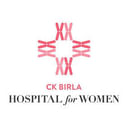Breast Cancer - What Are The Risk Factors?
Breast cancer is a very common form of cancer that develops in the cells of your breast. The cancer typically forms in either the ducts of your breast (the pathway through which milk reaches the nipples from the glands) or the lobules (the glands which produce milk).
Breast cancer can affect both males and females. However, it is more commonly observed in women aged between 45-55 years.
Look out for these symptoms!
Signs and symptoms of breast cancer include the following-
- Discharge of blood from the nipples
- A lump near the breast or the armpit
- Scaling or peeling of skin around the breasts
- Sore nipple
- Breast pain
- Swelling of lymph nodes in the armpit or on the neck
- Change in the shape and size of the nipple or the breast
- An inverted nipple
What are the risk factors?
- Age- Breast cancer usually strikes at an older age. Women aged over 55 years are most often diagnosed with invasive breast cancer.
- Family history- If you have someone in your family who’ve had a history of breast cancer, then you too may develop this disease later in life.
- Inherited genes- Mutation of certain genes- BRCA1 and BRCA2- can put you at a higher risk of developing breast cancer.
- Obesity- People with Body Mass Index (BMI) higher than or equal to 30 are at risk of developing breast cancer.
- Alcohol consumption- Aggressive or frequent alcohol consumption can make you prone to breast cancer.
- Early menstruation- Those who’ve had their first menstrual cycle before the age of 12, are more likely to get affected by breast cancer in the later stage.
- Postmenopausal therapy- Women undergoing hormonal therapy or medications combining progesterone and estrogen to treat menopause have greater risk of having breast cancer.
What is the treatment for breast cancer?
After a thorough evaluation of your overall health condition, your doctor will determine the options to treat your breast cancer depending on the type, size and stage of the cancer. The usual methods of curing breast cancer are-
- Lumpectomy- This is a minimally invasive surgical procedure whereby smaller tumors are removed from the lumps of your breast. Your doctor will only remove a portion of the cancerous lump, leaving the remaining portion of the breast intact. This allows for better symmetry of your breast. However, you may need to undergo chemotherapy or radiation therapy following a lumpectomy to make sure that all the cancer cells are destroyed.
- Mastectomy- This surgical procedure is performed to remove all of the breast tissues including the ducts, lobules, nipples and areola.
- Sentinel Node Biopsy- In order to determine whether or not the cancer has metastasized to other body parts including the lymph nodes, your doctor will first discuss with you the importance of removing the lymph nodes which are likely to be in the receipt of the lymph drainage from the tumor.
- Breast removal- In certain cases where people have a greater risk of developing breast cancer due to family history or a genetic susceptibility, removal of both the breasts are prescribed by doctors.
The rate of survival for breast cancer has increased in recent times owing to modern treatment techniques. Nearly 90% of breast cancer patients survive for at least 5 years after the treatment is done.



+1.svg)
